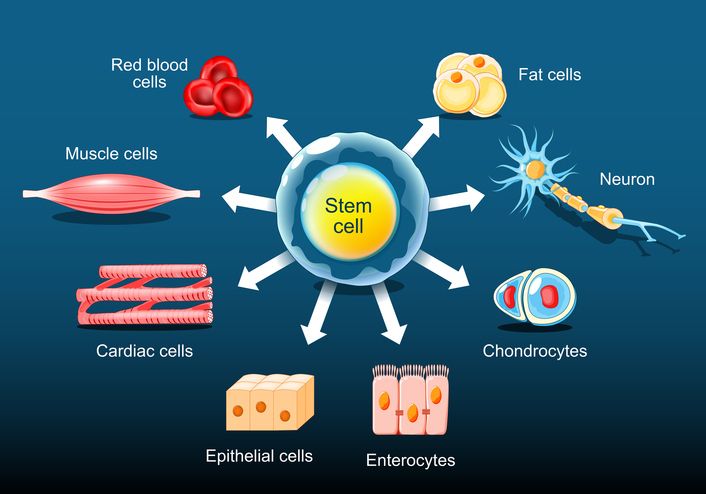
Author: Natalie Ng|Updated: 27 May 2025
Noticing more hair on your pillow or in the shower lately? You’re probably wondering if there’s something simple that could help—and omega-3 might be one place to start. These healthy fats are known for their benefits across the body, and your hair is no exception. Omega-3 supplements may support healthy hair by improving scalp circulation, reducing inflammation, and keeping hair follicles nourished. That can make a difference in how your hair grows, sheds, and feels overall. In this article, we'll explore key omega 3 benefits for hair, including growth, strength, and scalp condition. You can get omega-3 fatty acids from fatty fish like salmon and sardines, or from fish oil supplements. If you prefer plant-based sources, chia seeds and algae oil are good options too. Fatty fish, nuts, and soybeans are all important dietary sources of omega-3 that can be naturally incorporated into your meals. Omega-3s play a part in supporting scalp hydration, skin barrier function, and overall hair strength. They may also help slow down hair thinning and improve hair density over time. Different diets can influence your omega-3 intake, which in turn can impact hair health and overall well-being. If you’re looking to support hair health through your diet or thinking about adding a new supplement to your routine, keep reading. We’ll break down how omega-3 works, where to get it, and what to know before making any changes.

Fact 1: Impact of Omega-3 on Hair Loss
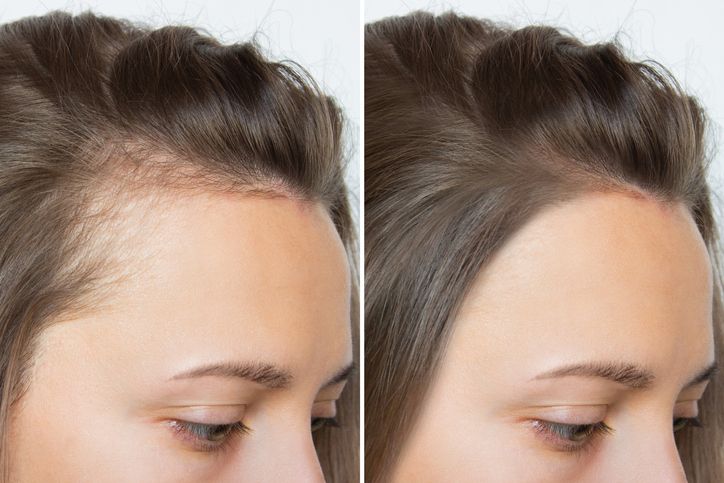
Omega-3 Helps Reduce Hair Shedding and Strengthen Follicles
Hair loss often links back to several causes like hormonal changes, stress, or missing nutrients. Omega-3 fatty acids support healthy hair by helping your body feed and protect your hair follicles. These nutrients improve blood circulation in the scalp, which may help reduce hair shedding and support healthy hair growth. Additionally, essential proteins play a crucial role in supporting hair follicles and maintaining strong, healthy hair.
Omega-3 Supports Scalp Hydration and Reduces Inflammation
Fatty acids play an important role in oil production. This helps keep your scalp hydrated and protects the skin barrier function. When the scalp is balanced and not irritated, it becomes easier to maintain healthy hair. Omega-3s also help calm inflammation around the follicles, which supports the natural hair growth cycle and may reduce thinning hair over time.
EPA, DHA, and ALA Play Different Roles in Hair Health
There are three main types of omega-3 fatty acids that support overall hair health:
EPA (eicosapentaenoic acid) and DHA (docosahexaenoic acid) are found in fish oil and algae oil. These are known to help reduce inflammation, improve scalp circulation, and support healthy hair growth. They’re commonly included in fish oil supplements and omega 3 supplements.
ALA (alpha linolenic acid) comes from plant based sources like chia seeds and flaxseeds. While it still supports health, only a small amount is converted into EPA and DHA.
Each type contributes to the way your body supports scalp function, nourishes hair follicles, and maintains overall hair density and hair strength.

Fact 2: Types of Omega-3 That Support Hair Growth
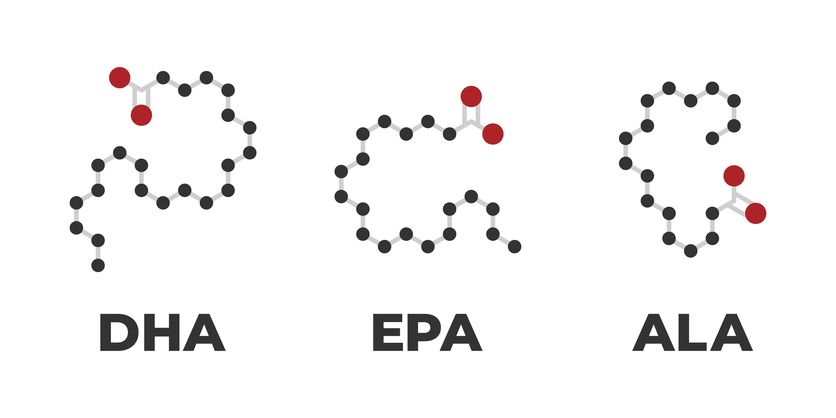
EPA, DHA, and ALA Provide Different Benefits for Hair
Omega-3 fatty acids come in three forms: EPA, DHA, and ALA. Each type plays a different role in supporting hair health. EPA and DHA are mainly found in fish oil and algae oil, while ALA comes from plant-based sources like chia seeds and flaxseeds.
EPA is known for its anti inflammatory properties. It can help calm the scalp and protect the hair follicles from damage linked to inflammation. DHA helps maintain the structure of cell membranes, which supports the strength of each hair strand and the overall health of the scalp.
Together, EPA and DHA support scalp circulation, reduce inflammation, and may improve the condition of your hair follicles. This combination creates a better environment for promoting healthy hair growth and reducing excess shedding.
Fish Provide the Richest Source of EPA and DHA
Fatty fish are the best natural source of EPA and DHA omega-3s. These essential nutrients play a direct role in supporting healthy hair growth and scalp function. If you do not consume fish regularly, a fish oil supplement can be an effective way to maintain your omega-3 intake and support hair health. Here’s how much omega-3 you can expect from a standard 3-ounce serving:
Omega-3 Content in Common Fatty Fish (per 3 oz)
• Mackerel: 2,300 mg
• Wild Salmon: 1,800 mg
• Herring: 1,700 mg
• Sardines: 1,200 mg
Eating these fish offers not only omega-3 fatty acids but also protein, essential vitamins, and other nutrients that support overall hair health. For those who don’t eat fish regularly, fish oil supplements can be a convenient way to maintain omega-3 intake.
When choosing fish oil supplements, look for products that clearly list their EPA and DHA content and have been tested for purity. This helps ensure you’re getting clean and effective omega-3s without contaminants.
EPA and DHA Work Together to Strengthen Hair
EPA helps regulate oil production on the scalp, keeping it moisturized and balanced. This can reduce irritation and protect the hair follicles. It also improves blood circulation, which helps deliver nutrients to the roots more efficiently.
DHA supports the structure of the hair shaft. It also helps produce sebum, the natural oil that protects your scalp and keeps hair hydrated. This can improve the appearance and strength of your hair over time.
The combined effect of EPA and DHA supports a healthier scalp and may reduce hair loss caused by poor circulation or inflammation. These fatty acids help keep the scalp environment stable, which supports long-term hair health and growth.
Book Now to Experience
F8 Hair Regrowth Treatment
1 Minute Self-Registration
Date should not be before minimal date

Fact 3: Scalp Inflammation Can Disrupt Hair Growth
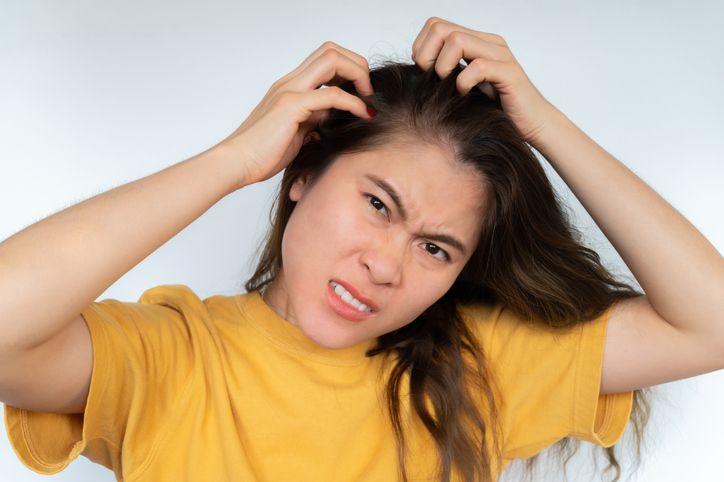
Scalp Inflammation May Lead to Hair Shedding
Chronic inflammation in the body can affect the way your hair grows. When inflammation targets the scalp, it may interfere with the natural hair growth cycle. Your hair follicles rely on a stable environment to stay active and productive. Inflammatory responses can disturb that balance and lead to increased shedding.
Inflammation can prevent follicles from receiving enough oxygen and nutrients. Over time, this can shrink the follicles and make them more likely to enter the resting (telogen) phase early. This weakens the hair and may result in visible thinning.
Common Signs of Scalp Inflammation
Scalp tenderness, itching, or redness can signal that inflammation is present. These symptoms often appear when the scalp’s protective barrier is weakened. In some cases, this inflammation may be related to autoimmune conditions or a poor diet lacking essential nutrients, including healthy fats.
Stress can also raise inflammation levels in the body. When combined with a lack of proper hair care or exposure to harsh treatments, this can make shedding worse. The immune system responds by releasing chemicals that damage healthy follicle cells.
How to Reduce Inflammation Around Hair Follicles
To reduce inflammation linked to hair loss, aim to improve both your daily routine and your diet. A balanced diet with enough omega-3 fatty acids can help regulate your body’s inflammatory response. Fatty acids like EPA and DHA have natural anti inflammatory properties that may support scalp health over time.
Other useful steps include avoiding hair care products that irritate the skin and reducing high-heat styling tools. Your healthcare provider may suggest treatment options based on the cause of the inflammation. These may include lifestyle changes or targeted treatments for scalp health.

Fact 4: Omega-3 Supports the Hair Growth Cycle
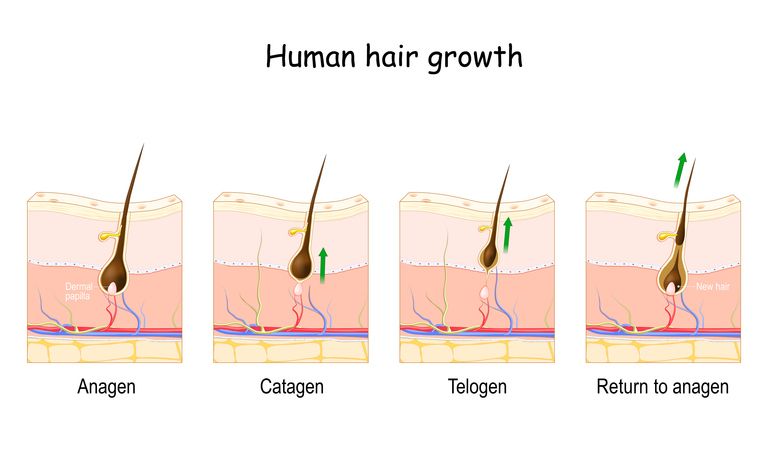
Fatty Acids Help Keep Follicles in the Growth Phase
Hair grows in cycles that include active growth, rest, and shedding. Omega-3 fatty acids support the active growth phase—known as the anagen phase—by helping hair follicles stay nourished and stable for longer periods. This may reduce how quickly follicles shift into the resting phase, which can help slow down shedding.
When you have enough omega-3s in your diet, they help support protein production inside the follicles. These proteins are essential building blocks that shape the structure of your hair and keep each strand strong.
Scalp Oil Production and Follicle Protection
Omega-3s also support the sebaceous glands in your scalp. These glands produce sebum, a natural oil that keeps hair soft and hydrated. Healthy sebum levels help protect the scalp, reduce irritation, and prevent the follicles from becoming dry or damaged.
With better oil balance and nutrient flow, your follicles are more likely to produce thicker, stronger hair. The result is a more stable growth cycle, which may lead to improved hair density and reduced hair loss over time.
Book Now to Experience
F8 Hair Regrowth Treatment
1 Minute Self-Registration
Date should not be before minimal date

Fact 5: Best Omega-3 Foods That Support Hair Growth

Fatty Fish Provide EPA and DHA for Healthy Hair
Fatty fish are the most effective food sources of omega-3 for hair. Salmon, mackerel, sardines, and herring are rich in EPA and DHA—two fatty acids your body can absorb easily. These fish also contain other nutrients like protein, vitamin D, and selenium that support overall hair health.
Eating just 3 to 4 ounces of these fish a few times a week can help you maintain a steady intake of hair-supporting omega-3s. Including them in your regular diet may improve scalp hydration, strengthen hair strands, and promote hair growth.
Plant-Based Omega-3s Can Support Your Intake
For those who follow a plant-based diet or prefer non-fish options, ALA is the main type of omega-3 available. It’s found in foods like:
• Chia seeds
• Flaxseeds
• Walnuts
These foods help increase your overall omega-3 intake, although the body only converts a small portion of ALA into EPA and DHA.
Seaweed and algae are good vegan sources of EPA and DHA and are often used in algae oil supplements. These are suitable for those who don’t eat fish but still want the hair health benefits of marine-based omega-3s.
Healthy Fats Improve Absorption
To get the most benefit from these omega-3 foods, pair them with other healthy fats. Ingredients like olive oil or avocado can support better absorption and add extra nutrients to your meals. Smoothies, grain bowls, and salads are easy ways to include these ingredients in your daily routine.
If you find it difficult to eat these foods regularly, you may want to consider nutritional supplements that provide a reliable source of omega-3.

Fact 6: Choosing the Right Omega-3 Supplement for Hair Health
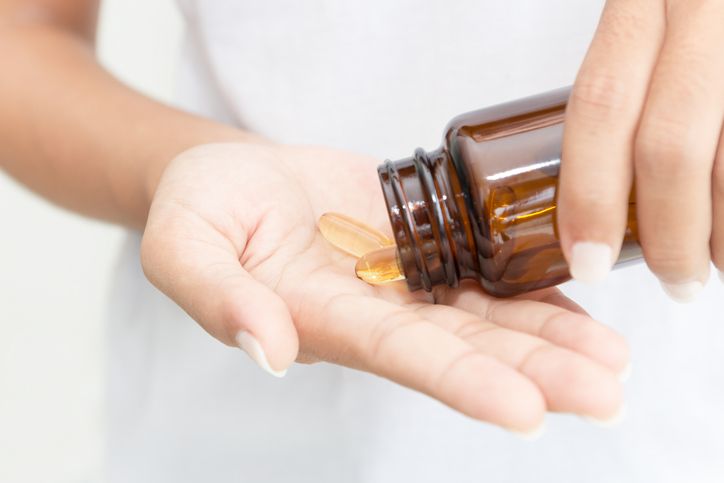
Look for EPA and DHA in Effective Ratios
If you don’t eat fish often, omega-3 supplements can help support healthy hair growth. To choose the right one, check that the product contains both EPA and DHA. These marine-based fatty acids are the most effective types for supporting hair follicles and reducing scalp inflammation.
Supplements that list EPA and DHA separately on the label allow you to see how much of each you're getting. Aim for a product that includes both in balanced amounts to support hair density and scalp circulation.
Third-Party Testing and Purity Checks
Choose fish oil supplements from trusted brands that test for quality and purity. Third-party testing ensures the product is free from harmful substances like mercury, heavy metals, or PCBs. Many reliable brands also use molecular distillation to remove contaminants while preserving the potency of the fatty acids.
Look for labels that confirm these safety checks so you can feel confident in the product’s quality.
Proper Storage and Additives to Watch
Some omega-3 supplements include vitamin E to prevent the oil from turning rancid. This can help extend shelf life and maintain the benefits of the fatty acids. Store your supplements in a cool, dark place, and always check the expiration date before use. If you have allergies or medical conditions, read the ingredient list carefully.
Book Now to Experience
F8 Hair Regrowth Treatment
1 Minute Self-Registration
Date should not be before minimal date

Fact 7: Daily Omega-3 Dosage for Hair Growth Support
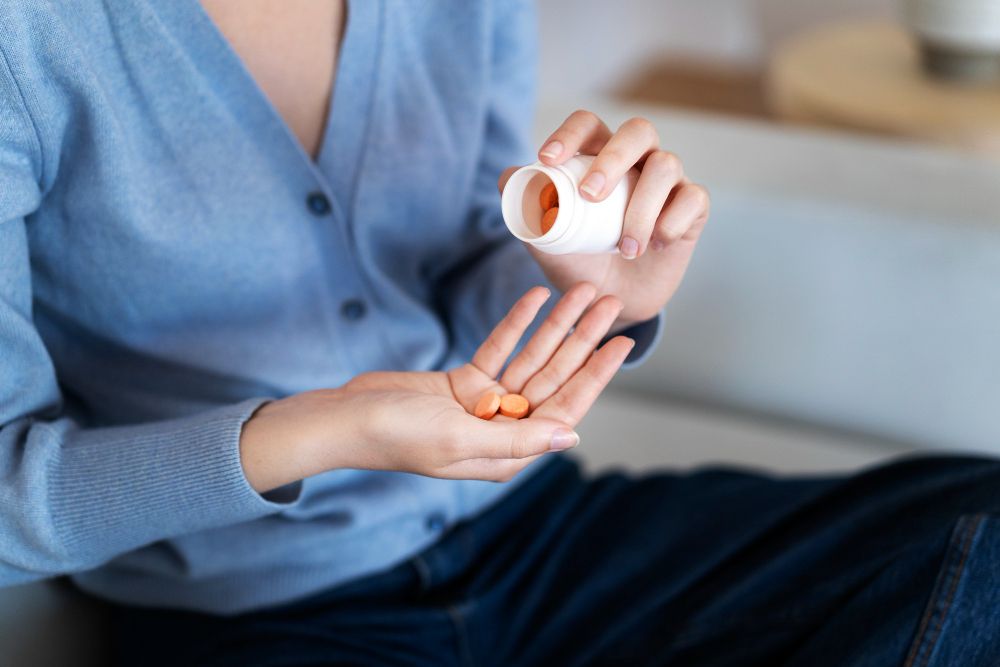
Suggested Amounts of EPA and DHA for Hair Health
To support healthy hair growth, aim for a daily intake of 1,000 to 1,500 mg of combined EPA and DHA. This amount is generally considered safe and effective for most adults. If you're new to omega-3 supplements, start with 500 mg per day and increase the dose gradually to give your body time to adjust.
Taking too much too quickly may lead to digestive discomfort, so it’s better to build up slowly over a couple of weeks.
Split Doses for Steady Nutrient Levels
For the best results, divide your daily omega-3 intake into two doses—morning and evening. Taking supplements with meals helps improve absorption and may reduce the chance of side effects like a fishy aftertaste.
Your body’s hair growth cycle is most active during the day, so a morning dose supports daily follicle activity. The evening dose helps maintain stable nutrient levels while your body goes through overnight repair processes. Maintaining this routine for at least three months may lead to reduced shedding and improved hair thickness.
Check With a Healthcare Provider First
Before starting any new supplement, it’s best to speak with a healthcare professional—especially if you take medications, manage chronic conditions, or have a seafood allergy. They can help you adjust the dose and recommend a plan that fits your health needs and daily routine.

Fact 8: Combining Omega-3 With Other Hair Loss Treatments
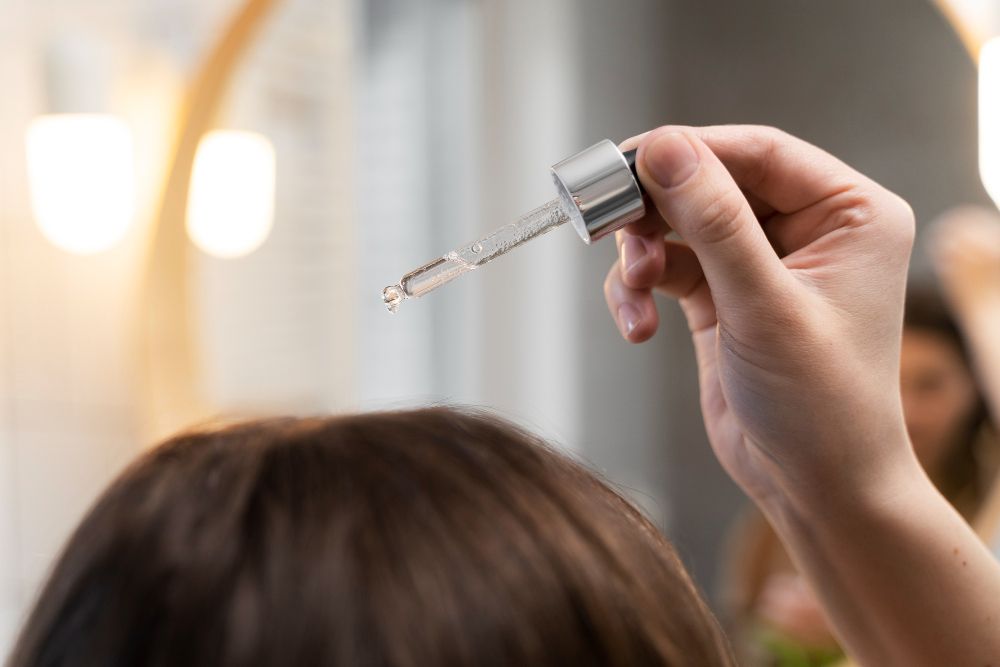
Prescription Treatments Can Work With Omega-3
Omega-3 supplements can be used alongside common hair loss medications like minoxidil or finasteride. These medications work differently from omega-3s, so combining them may support hair growth more effectively than using either one alone.
Before starting any combination of treatments, speak with your healthcare provider. They can help assess potential interactions and adjust your plan if needed. This is especially important if you take other medications or have a medical condition that affects how your body processes supplements.
Your doctor may suggest a specific dose or schedule for omega-3 supplements to match your hair loss treatment. This helps support hair health while reducing the chance of unwanted side effects.
Natural Treatments Can Support Hair Growth Together
You can also combine omega-3s with natural treatments as part of your regular hair care routine. Some of these methods may help improve circulation, reduce inflammation, or supply other nutrients that support hair strength.
Common Natural Hair Treatments That Pair Well With Omega-3
| Treatment | Benefit |
|---|---|
| Scalp massage | Boosts blood circulation to follicles |
| Rosemary oil | Helps soothe the scalp and reduce dryness |
| Biotin supplements | Supports keratin production for hair strength |
| Omega-3 supplements | Reduces inflammation and supports scalp hydration |
Using these treatments together may improve the condition of your scalp and promote hair growth more effectively over time. Combining internal support from omega-3s with external care like gentle scalp massage can help create better results when done consistently.

Combine Omega-3 Supplements With The F8 Hair Regrowth Treatment
While omega-3 supplements support hair growth internally by nourishing follicles and improving scalp circulation, professional treatments can further enhance these effects. F8 Hair Regrowth Treatment works on the surface of the scalp to improve the local environment for hair growth—making it a strong partner to your daily omega-3 routine.
How the F8 Hair Regrowth Treatment Works
The F8 treatment uses low-energy laser technology combined with a targeted hair growth serum. The laser stimulates inactive hair follicles and strengthens the hair papilla. At the same time, it encourages capillary repair and microcirculation, which improves the delivery of nutrients to the follicles.
The treatment also helps the serum absorb more effectively into the scalp. This serum works to unclog follicles, reduce excess oil, and maintain a healthy water-oil balance—all of which are essential for promoting healthy hair growth.
Key Advantages of F8 Hair Regrowth Treatment
• Non-invasive and safe: F8 uses gentle low-energy lasers. There’s no pain or skin damage, and no recovery time is needed.
• Improves scalp condition: The treatment cleanses the scalp, calms oil production, and supports skin hydration.
• Boosts nutrient supply: By improving microcirculation, the treatment supports nutrient delivery to the roots—making it an ideal complement to omega-3 fatty acids.
• Suitable for both men and women: F8 is designed to treat various types of hair loss and scalp concerns in a wide range of users.
Omega-3 and F8 Work Better Together
Omega-3 for hair supports growth from within by reducing inflammation, balancing oil production, and improving hair strength. F8 works externally to create a clean, well-nourished scalp environment where those internal nutrients can do their job more effectively. Together, they form a complete approach for supporting scalp health, improving hair density, and reducing hair shedding.
Interested in improving your hair and scalp health? Book your F8 Hair Regrowth consultation today and take the next step toward stronger, fuller hair.
New Beauty's F8 Hair Regrowth TreatmentBook Now to Experience
F8 Hair Regrowth Treatment
1 Minute Self-Registration
Date should not be before minimal date
FAQ
1. Can omega-3 help with postpartum hair loss?
Yes, omega-3 fatty acids may support recovery from postpartum hair loss by improving scalp circulation and reducing inflammation. These essential nutrients help nourish hair follicles and may promote healthy hair growth during the recovery period. Including omega-3-rich foods like fatty fish or taking fish oil supplements can be a helpful part of a postpartum hair care routine. Always check with a healthcare provider before starting a new nutritional supplement after childbirth.
2. Is there a difference between plant-based omega-3 and fish oil for hair growth?
Yes, there is a difference. Plant-based omega-3s (like ALA from chia seeds or flaxseeds) must be converted by the body into EPA and DHA—the forms most effective for supporting hair follicle health. Fish oil already contains EPA and DHA, making it a more direct source for promoting healthy hair growth. Algae oil is a good plant-based option that provides DHA and is suitable for vegetarians and vegans.
3. Can omega-3 improve hair thickness and diameter?
Omega-3 fatty acids support hair thickness by strengthening follicles and extending the growth phase of the hair cycle. While they won’t dramatically change your hair diameter overnight, regular intake of omega-3 through food or supplements may help maintain hair density, reduce breakage, and improve overall hair texture over time.
4. How long does it take to see results from omega-3 supplements for hair?
Results vary, but most people need at least 8 to 12 weeks of regular omega-3 intake to start noticing changes in hair health. This includes reduced hair shedding, improved scalp condition, and a possible increase in hair shine or softness. Combined with a balanced diet and scalp care regimen, omega-3s may support longer-term improvements in hair strength and volume.
5. Can I take omega-3 supplements if I’m already using a hair treatment like F8?
Yes, omega-3 supplements can be taken alongside treatments like the F8 Hair Regrowth Treatment. In fact, combining both may offer better results. While omega-3 works from within to support follicle health, F8 enhances nutrient delivery and scalp condition from the outside. Just be sure to follow the supplement dosage and speak with a healthcare provider if you have any existing health conditions or allergies.
Recommended Articles
COPYRIGHT© NEW BEAUTY MANAGEMENT LIMITED 2026. ALL RIGHT RESERVED.


